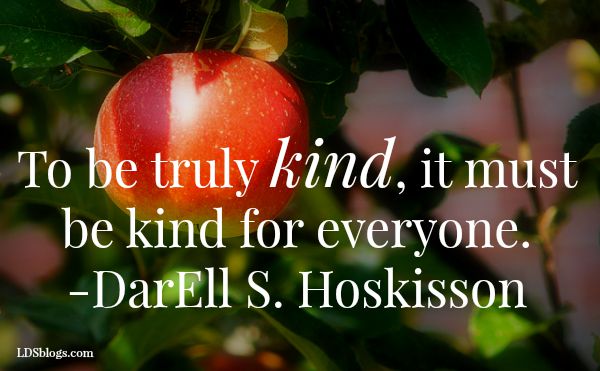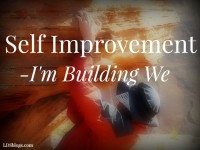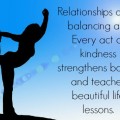“How do you say “No” without being rude?” One of my young women asked in all sincerity. I loved the question because it got right to the heart of peer pressure problems. We all wonder how “nice” or “good” people end up doing crazy things they never would have done on their own. We caution our youth to choose good friends, but even then, many times together it is like their brains all flew out the window. Often, at the center of the problem is a fear or core value that side tracks good decision making, “I didn’t want to be rude.”
“What?” In retrospect it doesn’t even make sense to the person who chose to face such personal risk and consequences in order to avoid seeming rude. Once an older friend asked me to get something out of a mailbox. She was not a close friend and honestly, I didn’t trust her. I knew it was illegal to take things out of people’s mailboxes. I was unsure if the mailbox was hers. In fact, I was pretty sure it wasn’t. I said, “No” and refused to act on her direction. But I was very surprised how difficult it was to say “No.” Even without a group of friends whose opinion mattered to me, I felt the pull of wanting to please and respect this older lady’s wishes against my better judgement. It was an amazing social pressure.
When you grow up in a family that values “nice” and is polite and cooperative, and more importantly when you personally value being that kind of a person, it can be nearly impossible to avoid getting caught with the horrible choice between two unthinkable things:
- I can do what he/she/they want and break my personal values or I can
- Be “mean” and say “no” and thereby break my personal values of kindness and respect to others. It seems like a no win situation. Unfortunately, people who do not want to be rude often appear undecided or are unclear so they eventually have to be loud or rude to get their words and decisions respected. So, either way we feel compelled to break our own values. If we go along, at least someone might seem happier. Is it any wonder we sometimes make the sacrifice to go along with things we should not?
Is it necessary?
 We each have to have personal limits to our own behavior in order to live our own values. If who we are with has so much influence over our choices that we blend completely, it is very hard to know ourselves at all. We need a solid core. We need to have some control over ourselves and not be victims of decisions of friends or those we are near. To avoid sacrificing our individual identity and personal character, I think we have to be able to stand up for ourselves. I think it is not only necessary, but critical to personal and group success.
We each have to have personal limits to our own behavior in order to live our own values. If who we are with has so much influence over our choices that we blend completely, it is very hard to know ourselves at all. We need a solid core. We need to have some control over ourselves and not be victims of decisions of friends or those we are near. To avoid sacrificing our individual identity and personal character, I think we have to be able to stand up for ourselves. I think it is not only necessary, but critical to personal and group success.
So, how do you do it? How do you say “No” without being rude?
Sometimes I think it is helpful to remember that words are just air. That is all they are if no action is taken because of them. You can do a no, without uttering a word. You can’t just say “no” or “no thank you” kindly and politely without also acting on that decision. Despite what we often believe, actions truly speak louder than words. For example, if you say you will not smoke, and you don’t ever smoke–even if you are persuaded and cajoled and threatened socially to try to get you to do it–people will believe you. Our words must match our actions to get the power they need to mean something. Once we get a reputation for meaning what we say, people are more often able to accept our words as a promise and not waste their time trying to persuade us against our better judgement. When our words and actions match up with our personal values, we develop a solid core that I think makes us feel our actual, individual power. Integrity matters!
There is a narrow road between “nice” and “mean” called “assertive.”
I used to want to be “nice.” I still value kindness and politeness, but I am done with being “nice” if it means I am being “mean” to myself. I tell my son when he is teasing his brother, “Fun needs to be fun for everyone–and that includes your little brother and me that has to listen to all the racket.” I feel that is the best way I can explain assertive:
To be truly kind, it must be kind for everyone.
So, if you go on that date just to be “nice” to the boy you don’t trust, you might head straight into trouble just so you wouldn’t hurt his feelings. But, your feelings matter, too. We have to remember, “I am a person, too and need to respect my own inner guidance of what is right and best for me.”
Assertiveness is something I love to study because it is the other choice, the third option that may not please everyone, but is actually kindest to all. I think it helps to know there is another choice. We are not caught between pleasing ourselves and others. We can walk a line that may not please all, but is really best– come what may.
If an assertive “no” is not accepted, we can get help. An assertive position is not harming others. It is a very defensible position –not aggressive and not self-harming, either.
Surviving Disappointing or Offending Others
I was on the floor curled up next to my bed in a ball, sobbing. I felt sick and physically weak. I could hardly stand my life living with someone who I had offended because she was giving me the silent treatment and in other ways would not forgive or let it go. It was an emotional vice grip that was crippling me.
It is easy to say that we shouldn’t be afraid of displeasing, disappointing or offending others. After all, those are just feelings–feelings that usually evaporate or dissipate with time. Although we want to feel happy all the time, we all experience negative emotions. So why are we so afraid of it?
 I think it is because there are, literally, consequences socially. Your friend may not like you. You may get excluded from the group. People may gossip or in other ways add actions to their feelings and that can literally punish. You may have to live with that angry, spiteful person. We could lose our job, or our friend, or ….. ? Sometimes not knowing is a very frightening unknown. Although invisible, social repercussions can be really painful. For those of us who like to please and are accustomed to being welcome and pleasing, just others’ unhappiness with us can be personally very painful. So, what I’m saying is, it probably will be painful…but I find it very helpful to remember:
I think it is because there are, literally, consequences socially. Your friend may not like you. You may get excluded from the group. People may gossip or in other ways add actions to their feelings and that can literally punish. You may have to live with that angry, spiteful person. We could lose our job, or our friend, or ….. ? Sometimes not knowing is a very frightening unknown. Although invisible, social repercussions can be really painful. For those of us who like to please and are accustomed to being welcome and pleasing, just others’ unhappiness with us can be personally very painful. So, what I’m saying is, it probably will be painful…but I find it very helpful to remember:
I do not cause other’s feelings
When someone is angry, hurt, or offended, it may be in response to me saying “No.” But, they really have a choice in how they view it. I did not “make” them angry. Our emotional response is caused not just by what happens to us or what others say, but also by what we think about it and by how we choose to respond to it. They have a choice. You never know, that person might thank you later for keeping them out of trouble by your example or for refusing to enable them. Because they say you are mean or “making” them hurt does not make it the truth.
We are all children
I physically couldn’t handle the emotional manipulation going on in my own house. I was getting sick and was very distressed. I called my Dad and he asked me a very simple question, “What would you do if she were your child?” I knew immediately. If I told my child, “no” and they threw a fit about it, I wouldn’t worry much about the tantrum. Suddenly I saw her behavior for what it was. She was having a little tantrum because she didn’t get her way. This was not about me–at all. There was nothing I could fix because I had not done anything wrong.
The tie of emotional manipulation evaporated. I was no longer afraid of her disappointment or of her treating me badly. Luckily I had learned with my children that often they don’t like what is best for them. It is okay if people don’t like our answers. They are still ours to give. We can say “NO,” and if they don’t like it, it is OK. Now I just visualize a child crying over not getting a cookie. We all want cookies! But, that doesn’t make them good for us all the time. Sometimes we all need someone to say, “No.”
Don’t take it personally
If someone is upset, it doesn’t mean we were rude. What they say, especially spoken in anger may be true to how they feel at the moment, but it does not make it ultimately, permanently, true.
May you have the courage
to defend yourself
from too easily giving in
and instead
say “No”
at least with your actions
because no one
can argue
a fact.
Namaste,
DarEll S. Hoskisson
About DarEll Hoskisson
DarEll S. Hoskisson loves to do hard things, but not too hard. She shares her own challenges, goals and experiences as she guides you into a realistic path of self-reflection and self-improvement. She shares tips on how to find, know and trust yourself so you can decide if other’s suggestions are right for you.
DarEll has the world a little upside down—where work is play and play is work. She actually thinks other people’s problems are fun to try to solve and lights up with a personal challenge. She loves people, harmony, and excellence. She also loves useful things like tools and ideas that make work faster, easier and more fun.
DarEll married in 1993 and graduated from BYU (1995) with a bachelor’s degree in English and Secondary Education. Since then she was adopted by 5 children and has worked with many non-profits. She is currently a certified personal trainer and group fitness instructor—leading pilates and yoga at her local YMCA.
DarEll lives in Florida where she enjoys her family, nature, her work, and encouraging people to live well.
She periodically posts her poems, what she is learning, and service opportunities on her personal blogs:
https://personalabridgements.wordpress.com and https://darellhoskisson.wordpress.com
Twitter •








I love your comment – a quatable quote – “To be truly kind it must be kind for everyone.”